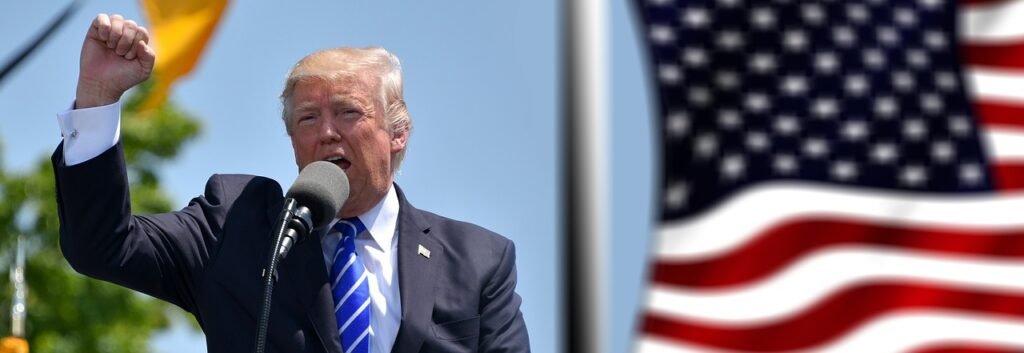The reason behind the U.S. dollar plunging and bond yields sliding is none other than President Donald Trump’s unexpected plot twist which rattled markets. the Federal Reserve Chair Jerome Powell’s term ends in the month May 2026. But it is reported that, the announcement of his term end may be as early as September or October 2025.

Dollar Weakens: What the Markets Say
After announcement of President Donald Trump for considering a new Fed chair by replacing Jerome Powell soon, the dollar slipped in international currency markets and the Dollar Index slipped to a new low, an estimated 0.4%-0.6% in the week. The dollar weakened as compared to the euros well as the British pound and with GBP/USD hitting a 3-year high.
This type of decision reflects the uncertainty in economy hence; bond yields have also slipped amid expectations of a rate hike.
Market analysts are believing that the credibility of the dollar could weaken due to Trump’s move could dominate political influence over Fed policy.
Why an Early Nomination?
- Political Pressure on Powell
The political pressure from the President Donald Trump is mounting on Federal Reserve’s current Chair Jerome Powell. One of the reasons is growing speculation about the 2024 election outcome.
Trump has criticized Powell frequently because of his slow interest rate cut, blaming for harming economic growth and acting independently of administration goals.
But Trump wants a Fed Chair who will align more closely with his economic vision like prioritizes lower interest rates to fuel expansion and support markets.
It has become very tough to maintain Fed’s mandate of independence at this stage of political backdrop tension, especially if a new chairman nominee is floated before Powell’s term officially ends in May 2026.
- “Shadow Chair” Concept
The concept of a “Shadow Chair” refers to without officially replacing active personnel, publicly announces his preferred candidate by the higher authority. In this scenario President Donald Trump will announce his preferred candidate officially without replacing Jerome Powell for the Federal Reserve Chair.
Their presence and public visibility could influence market expectations, investor sentiment, and policy speculation although the new individual would not have any formal authority or decision-making power within the Fed.
This move may create pressure politically on Powell to align more closely with Trump’s views on interest rates and economic policy.
However, economists warn that such type strategy may create risks the power, the credibility and independence of the central bank.
- Ideological Fit
Most probably Donald Trump will nominate the candidates whose ideology align with him such as the candidates who support lower interest rates, looser monetary policy, and a more growth-oriented approach to managing the economy. This disagrees with Powell’s cautiousness on interest rate cuts and inflation control.
The most discussed names are: Kevin Warsh, Kevin Hassett, Christopher Waller, Scott Bessent, and David Malpass. Ideologically All of them are business-friendly which would boost Trump greater influence over the Fed’s direction, even before the current chair’s term expires.
Market Implications
The Donald Trump’s announcement has created undulation in global financial markets. Investors are expecting interest rates cut will be sooner than expected. As a result, bond yields have slipped and the U.S. dollar has weakened against major currencies.
In short term lower interest rates typically support equities, hence stock markets probably respond positively. However, the uncertainty in Fed decisions due to political interference could undermine the central bank’s credibility and destabilize investor confidence in the long run may increase market volatility and complicate monetary policy expectations heading into 2026.
In the present scenario, Investors and analysts’ expectations for interest rate cuts have increased notably.
According to market data, there is a probability of at least one rate cut by the end of the year, whereas some traders pricing in multiple cuts.
However, some economists warn that premature rate cut due to political pressure rather than economic necessity could risk reigniting inflation.
